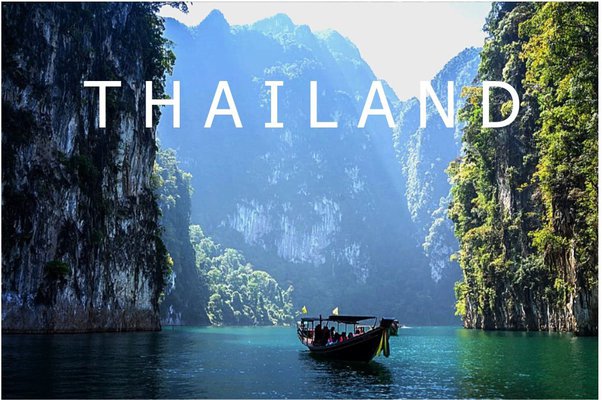We recommend you consider several factors, some of which you may not have researched so far if you are looking to retire in Thailand.
And that’s what this article is intended to be—sort of a checklist to make sure you’ve got everything covered.
The advantages and disadvantages of living in a city, on an island, or in the countryside will be discussed first. Then, we’ll talk about money matters, medical issues, driving, learning Thai, and more.
Contents
Where to Live? Island Life, City Life, and Rural Life
Obtaining a Visa, purchasing a Home, starting a Business, and obtaining Health Insurance
Opening a Bank Account and Transferring Funds to Thailand
How to get a Driver’s License and an understanding of Thai Retirement/Care Facilities
An Overview of Creating a Will
Thailand Retirement: The Ultimate Guide
Where to live?
Let’s start then with where you are going to live.
Most retirees in Thailand have some concept of where they want to live, whether it’s close to friends, a destination they’ve vacationed previously, or with a Thai partner. However, I advise you to visit and stay there before making a final decision if you have no connections to a specific location but have a few spots in mind.
You might still love going out three evenings a week to bars and late hours at age 50, or you might truly value peaceful times and early evenings if you’re 70. The key factor is location. If you have trouble with noise, avoid living in a popular tourist destination where there is likely to be a lot of loud music, a lot of foot traffic, and a lot of road noise all the time. Additionally, forget to choose sleepy rural areas if you easily get bored.
The Country Life
Some retirees have limited housing options because their spouse already has a permanent residence in Nakhon Nowhere. Living close to family makes sense, of course, but this isn’t always the best option for the foreign national involved.
In this situation, it can make sense for you to reside a few hours away from the beach or closer to a larger town.
The truth is that living quietly is wonderful for a time, but as we get older, socialising becomes more and more vital to our health.
You don’t want to be so lonely that you hardly ever interact with anyone. You will feel alien among the only people you get to interact with on a regular basis if you don’t speak Thai.
Rural towns and villages have one drawback: There might not be another foreigner from your own country for several miles, and since everyone there speaks Thai, you’ll just have your thoughts for company.
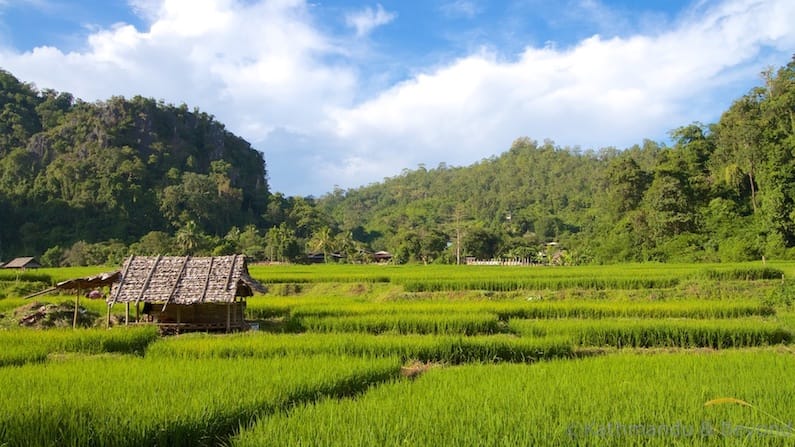
The phrase “I like the quiet life and being on my own” is used frequently. Yes, we agree with you, but I’d be cautious about being too solitary because it may make you feel isolated and harm your health. Your mental health is greatly impacted by having people to socialise with and having the occasional discussion each day.
“No man is an island.
Additionally, you could be faced with the challenge of balancing your own needs against those of your partner. Thais are very family-oriented, so your significant other may spend a lot of time with his or her family-something that can strain a relationship if both partners aren’t used to this level of togetherness. It’s crucial to have a few close friends who understand the challenges of living in a rural area and can provide you with support when necessary. As you age, travelling becomes more difficult and less preferable: enduring long drives, trains, and airport lounges is a struggle. Getting around in a rural area can also be difficult; many villages are not accessible by public transportation so owning a car is necessary even if you live in a village just outside of the main town.
Are you still comfortable operating a vehicle? Do you have access to a car? Are your wife and husband drivers?
They are expensive in Thailand, so would you prefer to rely on others for transportation? A motorbike is always an option, but do you want to ride one at age 65? The isolation of village life has diminished during the past 20 years as convenience shops and 7-Elevens have opened.
Driving in Thailand
To drive a car or motorcycle in Thailand, you must have a driver’s license. If you plan to stay in the country for an extended period and want to purchase or rent a vehicle, you must apply for this license. The process of obtaining one is a bit complicated. First, you must pass several tests: depth perception, colour perception, and peripheral vision as well as reflexes review and computer-based tests on driving regulations which are only available in Thai and English.
Life on an Island
Island living is a dream for many people. The beauty of the sea and the sand, the gentle breeze, the lovely climate, and endless opportunities to explore this magnificent planet we live on. There are many benefits of living near water, including that it’s healthy to do so and that it provides you with accessibility to many tourist attractions. However, finding affordable lodging near a beach that also satisfies your requirements for noise pollution and neighbourhood amenities can be difficult.
If you’re looking for a remote place to retire, Koh Samui is an excellent choice. Although it’s developed now, it still has a lot of charm and beauty. There are other beaches that are distant from the throng, and the island isn’t that vast, with numerous beaches that are distant from the throng so getting about by taxi is simple.
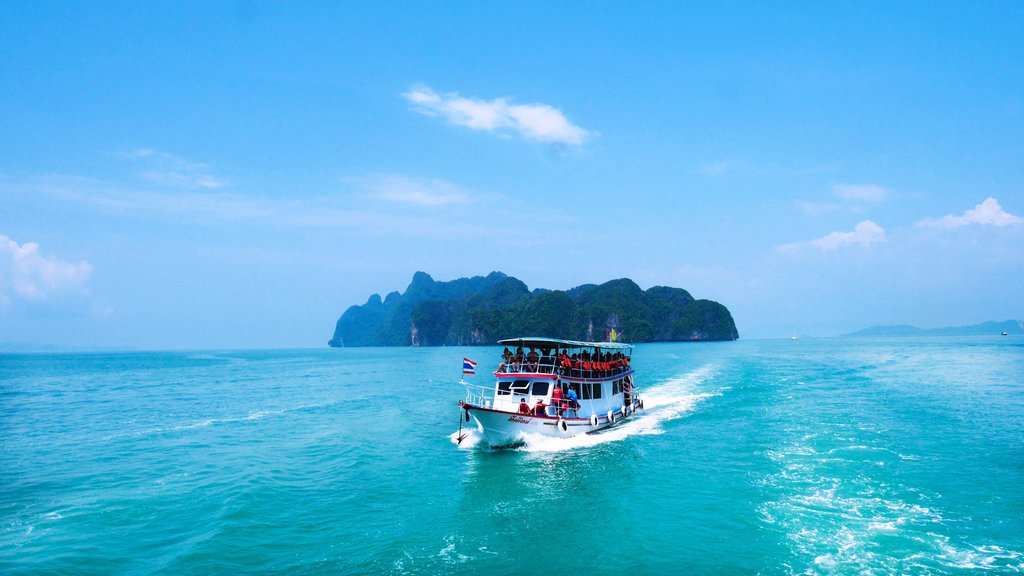
There are many expats there as well, making friendships easier to come by. There are several marketplaces and activities happening all the time. And there are many excellent hospitals to choose from.
Hua Hin is a quieter alternative to the more crowded beach towns of Phuket and Samui and is spread out with extensive beaches that require a car. In our opinion, Hua Hin feels a little monotonous when compared to its bustling neighbours.
One of the most well-liked destinations for expats and retirees to live in Thailand is the little city of Pattaya, which is located on the country’s east coast. Pattaya, located in Chonburi province, is a booming city with magnificent beaches, breathtaking scenery, excellent entertainment options, large shopping centres, a wide variety of restaurants, top-notch hospitals, and foreign schools despite its infamous reputation for its wild nightlife. Additionally, it provides a good standard of living and a comparatively low cost of living. Many people who are looking for a calm and refreshing environment dream of living in Pattaya. The Pattaya you seek is the Pattaya you find’, as some Expats are fond of saying.
If you’re looking for a great place to retire in Thailand, look no further than Pattaya! We are based here and love it. Not only is it conveniently located close to Bangkok and the airports, but there’s also a sizable retirement community. If you’re looking for something more picturesque, then Jomtien is just 3 kilometres down the road. And if that isn’t enough – Koh Larn Island is only a short ferry ride away! It’s an enchanting island with beautiful beaches and plenty of activities to keep you busy all year round.
Be sure to check out one of Expat Wise’s previous blogs on this topic –
The Urban Life
The Big Mango, Bangkok, is the logical destination for retirement in Thailand.
Bangkok is incredibly handy, with easy access to the major airports, affordable public transit throughout the city, restaurants, pubs, massage parlours, and 7-Elevens on every corner, and lots of locals to mingle with and expats to meet.
The fact that there is always something going on is one thing I enjoy about Bangkok. Due to the constant presence of life, it is difficult to feel lonely.
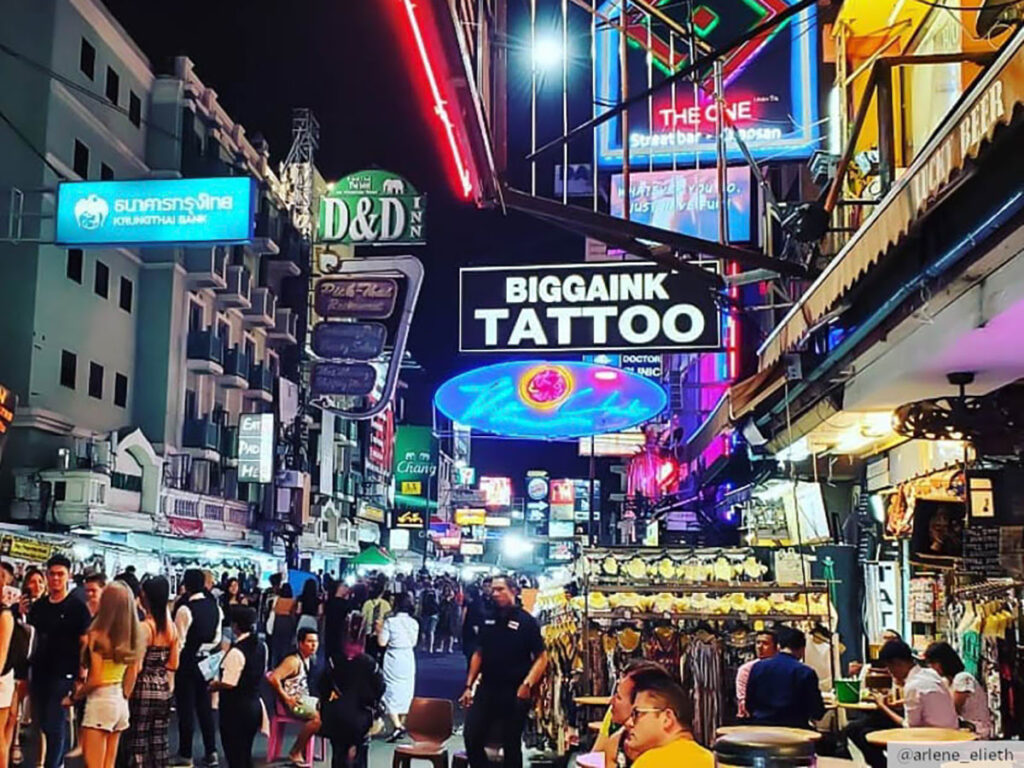
If you stay active, visiting the city and its history will never grow old. Additionally, when you’re out and about, you constantly engage with others who are just as curious about you as you are about them.
Of course, with such an active lifestyle comes some drawbacks too: heavy traffic and congestion can make getting around town difficult; high pollution levels are a reality; extreme humidity during certain times of the year is unavoidable; and renting houses within inner city limits may be hard to come by. Despite all these challenges though – there’s always something going on! Whether it’s exploring the historic sites or simply mingling with locals or other expats – staying social will help keep your spirits up while living in The Big Mango.
It must also be acknowledged that Bangkok is not easy to navigate for those with disabilities. It’s probably not the city for you if you need a wheelchair on a regular basis or if you walk with a stick and have trouble with crowded walkways and challenging pavements.
Instead of going to Bangkok, one might like to go to Chiang Mai, which is considerably smaller, surrounded by nature, and full of historical monuments and cultural attractions.
The scale and level of activity in Bangkok are the key distinctions between the two. Except if you are content to ride a scooter, which is necessary in Chiang Mai, Bangkok is easier to navigate.
Thailand Retirement Visas
In essence, you have two choices:
Visit the Thai embassy in your area to obtain a Non-Immigrant O Visa valid for 90 days. Use this visa to enter the country. Open a Thai bank account once you’re there and deposit 800,000 Baht. You can apply for a one-year extension of stay based on retirement at a local immigration office once this money has been in the account for 60 days. Every 90 days, you must report to immigration. The term for this is 90-day reporting. You can do it online as well. For the extension of stay based on retirement, you must be 50 years old.
Obtaining an O-A visa is the alternative. When you enter Thailand with this, you are granted a one-year stay. It is obtained at a Thai embassy in your home country. Although it seems simpler than option 1, it has several drawbacks, such as the need to get mandatory health insurance and undergo a police check (to check for criminal records, etc.). The simplest method is to choose option 1.
Essentially, there are only two alternatives available to retirees: an extension based on retirement obtained through a Non-O Visa and the O-A Visa obtained in your place of residence.
Building vs. Purchasing a Home
You could desire to purchase real estate in Thailand depending on the scope of your finances, though renting here is inexpensive and might be a better choice. Renting for 20 years or more will typically be much less expensive than purchasing a home.
Renting also provides you with the opportunity to relocate or go back home without having to deal with the inconvenience of selling or renting out a place through an agent.
In Thailand, there is an old proverb that goes, “Rent everything and own nothing” to be happy.
Remember that unless it’s part of a business setup, which is a little cumbersome and not available to individuals who don’t have the proper company formation in place, a foreigner cannot own land in Thailand.
Therefore, if you “buy land” with your partner, you may risk only fronting the money and covering the cost of building the house.
The most convenient way to acquire property in Thailand is to purchase a condominium. Without having to worry about a lease, you can own one altogether and leave it in your Will.
Operating a Business or Working
On a retirement visa, you are not allowed to work. You should never deviate from this rigorous guideline because doing so could result in deportation. You will need to modify your visa status if you do happen to obtain employment or decide to launch a business.
Although it is explained in our blog on starting a business in Thailand, the process is by no means as simple as you may believe.
Medical Insurance
For those who have not previously worked in Thailand and don’t have a social security card, expats and foreigners cannot make use of Thailand’s free healthcare facilities.
If you already have health insurance in your home country, make sure it will cover you while you’re living abroad in Thailand.
If you don’t already have a policy, you can get a local one that will cover you in Thailand or an international one that will cover you when you travel overseas or visit family. Because it solely covers local healthcare, a domestic policy is obviously less expensive. You might not be able to receive health insurance if you are over 75 or have a major health condition. Either that or the cost of the insurance premium will be prohibitive. We are here to help in such situations.
Expat Wise have direct relationships with several domestic and international providers as well as a bespoke, quick and simple quotation system to easily match you to your ideal policies. Some believe that engaging a broker to source your insurance policies adds to the costs due to additional fees. This is not the case, as we aggregate different providers which can help you save on premiums and most certainly on time.
To learn more visit – https://expatwise.net/contact/, fill out your contact details and we’ll be in touch to kickstart the process.
Life Insurance
You might also need to arrange for life insurance. If you already have a policy, you should confirm with your insurer whether it may be transferred to Thailand.
To make sure your spouse will have money when you pass away, you might want to think about paying a monthly life insurance premium if you’re getting married or cohabiting with someone in Thailand.
It frequently happens that the foreign partner in a relationship is 10, 20, or more years older than the other person, making him more likely to pass away first. Preparing for her/his life without you is therefore wise.
You may need assistance with additional financial decisions. Again, Expat Wise can refer you to trusted and established Expat providers both in Thailand and overseas to find the most suitable policies for your needs.
Thai Bank Accounts
The cost of living in Thailand is generally lower than in many Western countries. However, it’s essential to create a budget that considers housing, food, transportation, healthcare, and leisure activities, and to cover all this we highly recommend you open a Thai bank account, which is normally a simple process, though results do vary branch-to-branch, province-to-province etc.
When it comes to banking, foreigners have many possibilities. You will be able to open a straightforward checking account with online banking and a debit card.
The banks that are often the most welcoming to foreigners are Bangkok Bank and Kasikorn Bank. Both banks have a great working relationship with Wise.com, which we will explore next.
As soon as you can, open a bank account because it will make your life much simpler. As mentioned, before you can complete your 1-year extension of stay (based on retirement) at an immigration office, you must additionally deposit the 800,000 Baht in a Thai bank account for at least 60 days.
Money transfers to Thailand
It goes without saying that you will frequently need to send money into Thailand, whether it is for personal use, rent, or major expenditures like a car or house.
Wise is the most affordable way to accomplish this. Basically, you transfer funds from your home bank account to Wise, who then transfers the funds to your Thai bank account. The benefit is that you save sending and receiving fees and receive the mid-market exchange rate rather than the rate applied by so-called High-Street Banks, and you only have to pay Wise a modest handling fee.
Studying Thai
Learning Thai is advantageous socially since it allows you to communicate with cab drivers, store owners, and others in positions of authority. Speaking Thai will improve your bartering abilities, which will enable you to save money.
Be aware that learning a new language, much less one with a different alphabet is difficult for anyone over 50. The good news is that learning Thai isn’t difficult. In fact, you’ll be astonished at how rapidly you pick up new vocabulary and how quickly you can put simple sentences together.
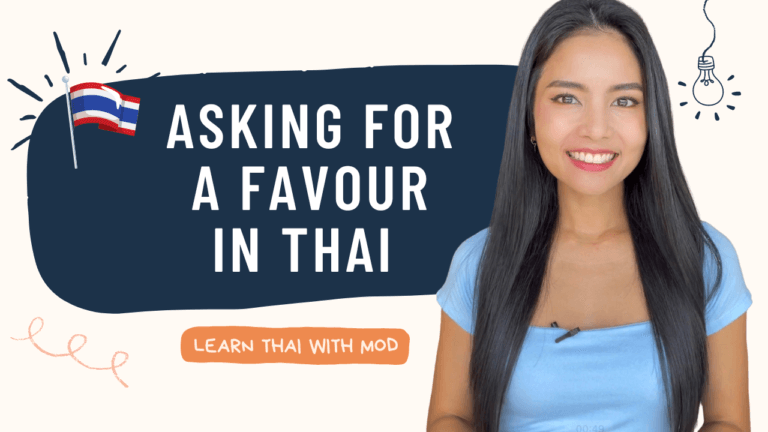
Retirement and Care Facilities
It’s depressing to consider our final years, but when you’re in your final couple of laps, as it were, your health can suddenly deteriorate.
What would you do if you found yourself unexpectedly unable to move, suffered from dementia, or required 24-hour care for a major illness?
Some people may be fortunate enough to have a partner who is ready to take on the role of caregiver, but even that situation may not last for very long. The good news is that Thailand has care facilities that cater to foreigners with numerous options in all the nation’s most populated areas.
Creating a Will
Given that typically most Expat investments are held back home, many overlook the necessity of a Will. However, a Thai Will is required even if there are only a few assets in Thailand.
The Thai legal system is often complicated, making it difficult for your family to receive your wealth if you pass away without a will.
The procedure will go more smoothly if you have a will that expresses your intentions for the assets you leave behind in Thailand. It will also save your family members the expense of hiring an attorney and paying court costs to establish their claim to your inheritance.
Conclusion
As you can see, there are many factors to consider when thinking about retiring in Thailand. We hope this article helps clarify some of the main issues faced when people want to stay long-term in the Kingdom.
Whenever you venture somewhere new you can either invent new and often very costly mistakes or just ask people in the know, it’s a lot to take in and the ‘learning experience’ is not for everyone, why not value your time and speak to the experts like us to sort all your retiring or moving to Thailand issues for you, so you can get on and remember the reason why you fell in love with the land of smiles and decided to move here.
Why Expat Wise is Your Ultimate Thailand Retirement Partner
At Expat Wise, we understand that retiring in Thailand comes with its own set of unique challenges. That’s why we take pride in being the top choice for expats seeking a seamless retirement experience. Here’s why:
- Expert Guidance for Every Step: Our team of seasoned experts is here to assist you every step of the way, whether it’s finding your dream residence or navigating the visa application process.
- Unparalleled Understanding: We have an in-depth understanding of the intricacies involved in retiring in Thailand. With our guidance, you can overcome any hurdles and enjoy a stress-free retirement journey.
- Tailored Solutions for Your Lifestyle: We’re committed to providing you with personalized solutions that meet all your lifestyle requirements. Our hands-on approach ensures a hassle-free experience customized to your needs.
Ready to make your Thailand retirement dreams come true?
Contact Expat Wise today and discover how we can be your trusted partner in creating the retirement lifestyle you’ve always envisioned.


